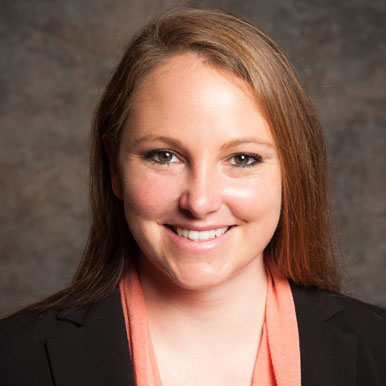Ensured U.S. diplomats in the Middle East could securely dispatch and receive classified documents and equipment during the Arab Spring uprisings.
Shane Morris played a crucial behind-the-scenes role for the State Department during the Arab Spring uprisings in 2011, ensuring that U.S. embassies were able to dispatch and receive critical classified documents and equipment to fully carry out their diplomatic missions.
As a new supervisor with the State Department’s Diplomatic Courier Service, Morris faced a crisis situation shortly after assuming her post last year, when normal routes for delivering and retrieving important diplomatic pouches were disrupted because of violence in the Middle East. This created the potential for opening security holes in diplomatic communications and endangering American personnel.
Now 29 years old, Morris quickly launched into action, accomplishing the complex tasks of negotiating with various interests to establish new routes, developing and coordinating courier missions and making sure the arrangements allowed for secure and safe passage of classified pouch shipments.
“In the Middle East and North Africa during the Arab Spring, we confronted the threat of U.S. diplomatic missions being overrun by protesters and classified materials being compromised,” said Jim Angell, a regional diplomatic courier officer. “Through her creative use of transportation routes, Shane extracted all classified materials from these hotspots to ensure they remained secure.”
At the same time, Angell said, Morris “found non-traditional transportation routes to deliver sensitive materials within the region.”
Morris showed creativity under difficult circumstances, said Gentry Smith, the deputy assistant secretary of state for countermeasures.
“She understood the mission had to be done. The couriers were responsible for making sure things got where they needed to go, and they all needed to have a Plan C, D and E, in the event that Plans A and B failed,” said Smith. “Shane came up with things that were outside the box, but were realistic to implement.”
When access to Bahrain, a primary courier hub, was cutoff because of protests and unrest there, Morris devised a plan to send diplomatic pouches from Frankfurt, Germany, to the United Arab Emirates. She organized a successful meeting between a freight forwarder, U.S. personnel and airport authorities to discuss tarmac access needed by a diplomatic courier at that airport.
“This was the first time in recent memory that a U.S. diplomatic courier was able to descend to the tarmac in the U.A.E. and process into the country to service the U.S. diplomatic missions ” in the cities of Abu Dhabi and Dubai, said Dale Cazier, the deputy director of Diplomatic Courier Service.
Cazier said part of a courier’s job is never to let a diplomatic pouch out of sight, even while it is loaded beneath a plane, so couriers needed permission to be admitted to airport areas where only authorized personnel were allowed.
Morris also found “workarounds” that allowed couriers to deliver materials securely to the U.S. embassies in other hotspots.
For example, she was confronted with a backlog of sensitive materials at the U.S. embassy in Yemen due to the difficulty in obtaining flights to the region and obstacles put in place by the Yemeni government. There was ongoing civil unrest throughout the country and large-scale protests and violent clashes in major cities.
When a flight became available through Rome, Morris worked out the details with U.S. personnel in Italy to make sure the materials were safe while transiting the city and not searched, screened or left unattended in customs. She was able to clear the entire backlog of classified material from Yemen in one flight, just as the U.S. embassy there began discussing the possibility of evacuating personnel because of the escalating violence.
“We’re very customer-service based,” Morris said. “What we’re moving is what the people on the ground need to do their jobs, so we’re working round the clock to get things to people anywhere in the world.”
It is unusual for employees as young as Morris to begin working with the Diplomatic Courier Service because they tend not to have the required experience, according to her colleagues. But Morris, who speaks three languages in addition to English, had gone to school in Canada, traveled in South America, worked in Thailand and volunteered at the Mother Theresa Orphanage in India, proved to be an exception.
“Shane is always finding better, faster, more economical and secure ways to deliver our sensitive materials overseas,” said Dan Power, director, U.S. Diplomatic Courier Service. “Shane is a shining example of the federal government’s upcoming and rising stars.”
Morris said it was rewarding to find ways around roadblocks and ensure safe and secure deliveries and retrievals of classified materials needed by U.S. diplomats during this period of crisis.
“You really need to be able to think on your feet and make the best of any situation,” Morris said. “Working with what you have at hand is really what keeps it so interesting.”

